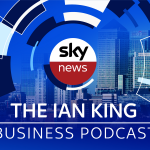ASOS has said it expects to take a £14m hit after deciding to stop selling clothes in Russia in response to the country’s invasion of Ukraine.
The online fashion retailer said the move, announced last month, would also reduce revenue growth by 2% this year.
Russian sales had previously made up about 4% of its business.
In its latest results, the company said its profits plunged to a pre-tax loss of £15.8m in the six months to the end of February.
ASOS had reported pre-tax profits of £106.4m in 2021.
Sales still rose 1% to £2bn during the same period but the company said they slowed down as customers returned to the high street.
ASOS said it was affected by supply chain disruption and limited stock availability, expecting the next six months to be more difficult as inflation pushes up costs.
Cost of living: Real wages fall by 1% as pay fails to keep up with inflation
Chelsea FC sale: Celtics owner Pagliuca breaks silence with pledge to ‘cherish’ Blues
EasyJet blames government for delays in crew security checks that are ‘adding to flight cancellations’
Chief operating officer Mat Dunn said ASOS had raised prices by a low to mid-single percentage in January, but not since.
“We’re making sure that our value proposition is as attractive to customers as it can be and we’ve definitely absorbed some of the inflationary pressures in order to do that,” he said.
He said there is still some uncertainty around supply coming from China but the company is in a much better situation now than they were at the start of the winter season.
China’s COVID-19 outbreak in Shanghai resulted in lockdowns that threatened to disrupt supply chains around the world.
The company blamed its losses on the £30.6m it spent on upgrading its business – including £7.9m on launching a new strategy, £5.5m to move from the junior AIM stock market to the main FTSE stock exchange, £18.3m relating to its office in Leavesden, Hertfordshire, and £6.4m due to its takeover of Topshop.
Follow the Daily podcast on Apple Podcasts, Google Podcasts, Spotify, Spreaker
Bosses said they hoped sales growth would accelerate this year due to improvements in its stock levels and the recovery of events and holidays after the pandemic, which could fuel clothing purchases.
In the UK the company’s sales grew 8% to £895.5m but it admitted it missed out on sales for events in January.
Sales in Europe increased 1% to £577.4m, where supply chain issues and COVID restrictions posed bigger problems.
And in the US sales went up to 11% to £252.7m as the company launched two physical shops inside Nordstrom, a department store.
The company’s shares dropped by as much as 6% in response to the new earnings data.






















